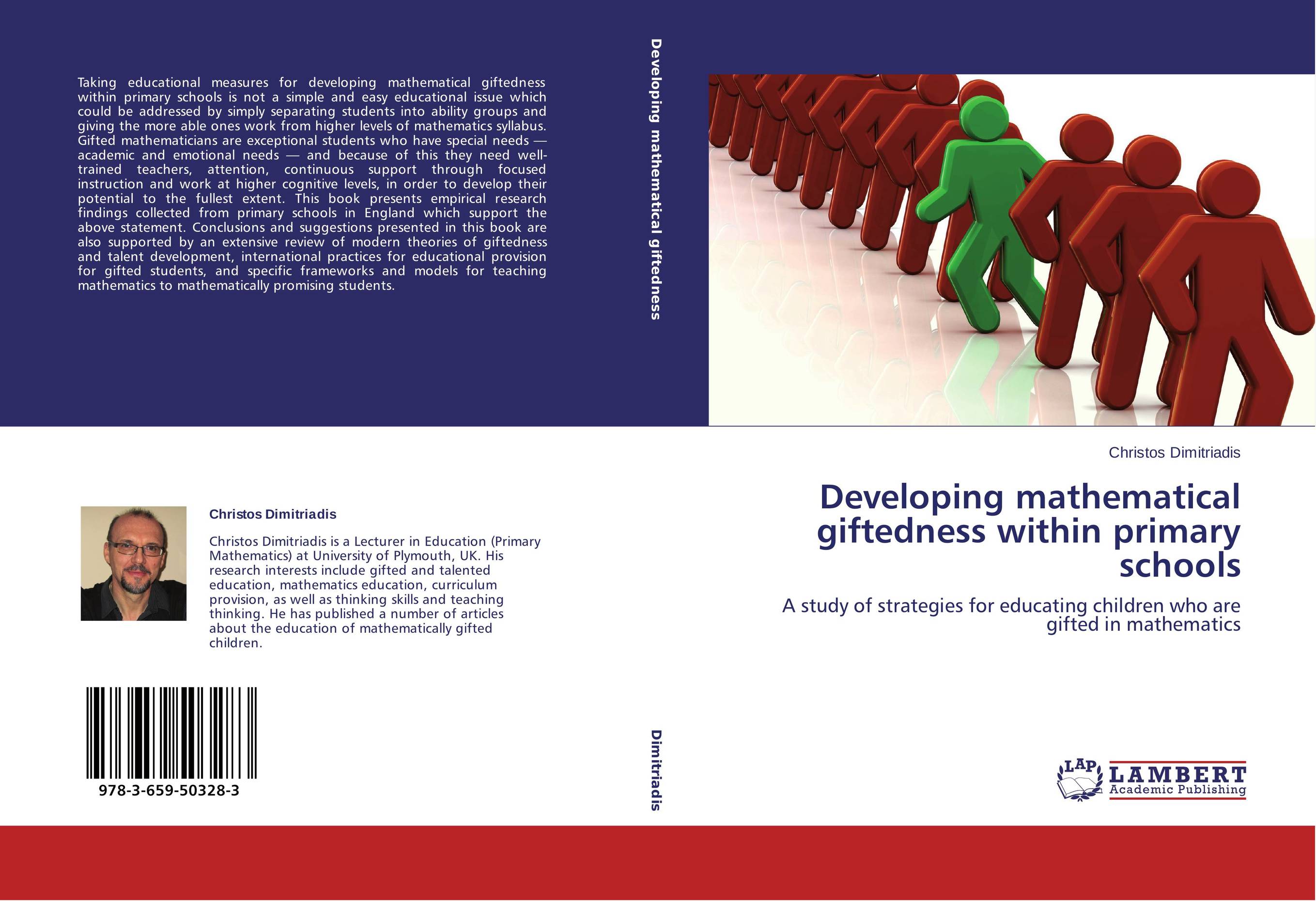| Поиск по каталогу |
|
(строгое соответствие)
|
- Профессиональная
- Научно-популярная
- Художественная
- Публицистика
- Детская
- Искусство
- Хобби, семья, дом
- Спорт
- Путеводители
- Блокноты, тетради, открытки
Developing mathematical giftedness within primary schools. A study of strategies for educating children who are gifted in mathematics

В наличии
| Местонахождение: Алматы | Состояние экземпляра: новый |

Бумажная
версия
версия
Автор: Christos Dimitriadis
ISBN: 9783659503283
Год издания: 2013
Формат книги: 60×90/16 (145×215 мм)
Количество страниц: 432
Издательство: LAP LAMBERT Academic Publishing
Цена: 45618 тг
Положить в корзину
| Способы доставки в город Алматы * комплектация (срок до отгрузки) не более 2 рабочих дней |
| Самовывоз из города Алматы (пункты самовывоза партнёра CDEK) |
| Курьерская доставка CDEK из города Москва |
| Доставка Почтой России из города Москва |
Аннотация: Taking educational measures for developing mathematical giftedness within primary schools is not a simple and easy educational issue which could be addressed by simply separating students into ability groups and giving the more able ones work from higher levels of mathematics syllabus. Gifted mathematicians are exceptional students who have special needs — academic and emotional needs — and because of this they need well-trained teachers, attention, continuous support through focused instruction and work at higher cognitive levels, in order to develop their potential to the fullest extent. This book presents empirical research findings collected from primary schools in England which support the above statement. Conclusions and suggestions presented in this book are also supported by an extensive review of modern theories of giftedness and talent development, international practices for educational provision for gifted students, and specific frameworks and models for teaching mathematics to mathematically promising students.
Ключевые слова: Mentoring, Motivation, Attitudes, Affect, Mathematics teaching, Ability grouping, gifted and talented, Mathematics learning, high ability, educational provision



